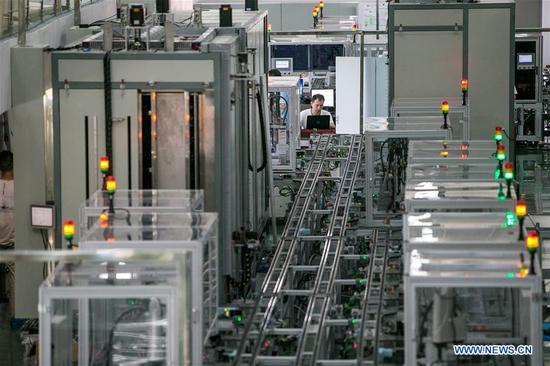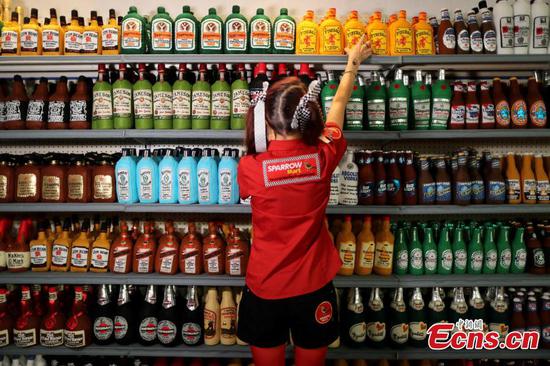As China endeavors to further open up its market this year, which marks the 40th anniversary of the country's reform and opening-up, Shanghai has been a frontrunner in implementing relevant policies, with preliminary achievements recorded in various areas.
The Shanghai municipal government has introduced 100 detailed measures, including further opening up the financial sector, building a more open industrial system, strengthening intellectual property protection, promoting import and improving the city's business environment.
Further opening-up in financial sector
In order to upgrade Shanghai’s status as an international financial center, the city has put forward 32 measures covering six areas in line with the proposals of Chinese central bank governor Yi Gang during the Boao Forum for Asia in April.
So far, Shanghai has selected 23 projects under the new opening-up policies and nine have been approved by the State Council and China’s top financial regulatory bodies, including the establishment of the first joint-venture insurance asset management company as China has proposed to speed up the opening-up of its insurance industry.
Besides, Shanghai has been working to enhance its core competitiveness as an international financial market.
The Shanghai Crude Oil Futures, launched on March 26 this year, became Asia’s largest and the world’s third-largest crude oil future contracts after just three months of operation.
The Shanghai Energy Trading Center has completed its registration in Hong Kong Special Administrative Region (SAR), making it more convenient for foreign investors to participate in China’s futures trading in the future.
The daily quota of the Shanghai-Hong Kong stock trading link has quadrupled. And the long-expected Shanghai-London Stock Connect will launch later this year, as preparation work runs according to the timetable.
Shanghai has also played a leading role in serving the Belt and Road Initiative financially. This year, the countries and regions along the "Belt and Road" such as the Philippines, the United Arab Emirates and Singapore have issued a total of 4.46 billion yuan of bonds in the inter-bank bond market in Shanghai.
Magnet for foreign investment
In the first half of 2018, Shanghai's new contractual foreign investment reached 21.5 billion US dollars, up 18.1 percent, 8.5 percentage points faster than the first quarter.
The main sources of foreign investment remained stable, with Hong Kong and Singapore increasing their investment in Shanghai by 22.2 percent and 35.6 percent respectively. Investment from European countries, especially from Germany and the Netherlands, has surged by 42.2 percent.
In the same period, 17 new headquarters for international companies, and eight new foreign-funded research and development centers were established in Shanghai.
Foreign companies in the city are also seeing better profitability. From January to May, the operating income of foreign enterprises in Shanghai increased by 10.3 percent, and their total profit grew by 17.6 percent.


















































